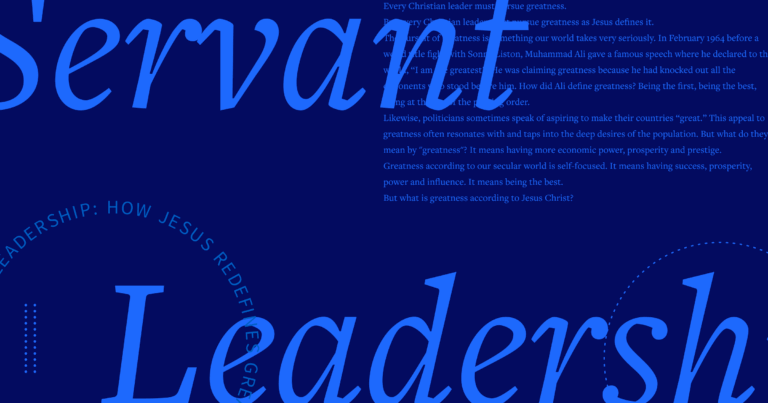Among the many sayings in the book of Proverbs is one that pastor Charles Bridges called the polestar of the Christian life—that is, the fixed point in the sky by which one is able to navigate when no other landmark is in sight. In four lines, it reads as follows: Trust in the LORD with all your heart, Who is the Lord of whom this verse speaks? If you’re reading this, you likely already know that the Lord is the God of the universe. He is the one to whom Scripture introduces us, the one who created the heavens and earth, the one who made his covenant with Abraham, the one who sent Moses to lead the Israelites, and the one who came as the God-man, Jesus Christ, to offer His body as a sacrifice for sin. But what does it actually mean to trust in this God? Let’s consider the answer from a biblical perspective. The classic, clichéd illustration of trust is the trust fall: One person dons a blindfold, folds her arms, and chooses to fall backward in the expectation that her partner will catch her. Anyone who has been through that exercise understands that there is a difference between trust and belief. It’s not hard to believe someone’s there behind you (nor is it unimportant); it may be hard to trust they will catch you. So it is with God: It is possible to believe in God and yet not to trust Him. Many put their trust in someone or something other than God—their grade point average, material possessions, sporting achievements, or a love interest. Usually, it’s only when things go south that we begin to see that however much we believe, we have failed to put our trust in God at all. The first question to ask ourselves, then, is this: “Do I trust God, or do I simply believe that He’s there? Do I listen to His Word and follow it? Is God the foundation I am building my life upon? Or when grades plummet, my friends turn against me, or an injury sends me to the bench, will I find that the rug has been pulled from under me and left me flat on my back?” Proverbs also teaches us that trust in God is to be “with all your heart.” It is to be all-encompassing—just as you would hope for in a love relationship. There’s no sense of the old humorous Valentine’s Day couplet: “My heart is like a cabbage divided into two: The heart I give to others, and the leaves I’ll give to you.” Who receives that Valentine with a smile? If this relationship of trust is to work, it can’t be anything less than everything. Trust in God is also to be exclusive—or, as Proverbs puts it, “Do not lean on your own understanding.” In other words, we’re not to rely on our own insight. That doesn’t mean we shouldn’t think or try to make good decisions. Rather, it is to say that when our intuition points us one way and the Word of God points us another way, one is a more trustworthy guide than the other. This is why Jesus says in Matthew 6:33, “Seek first the kingdom of God and his righteousness, and all these things will be added to you.” God essentially says to each of us, “You focus on what’s eternal, and I’ll take care of what’s temporary.” It is so tempting to turn that upside down and say with the voice of our surrounding culture, “God helps those who help themselves!” But no—our responsibility is to set out on God’s path and trust Him to take care of us. We aren’t to demand that He follow in our steps and cater to our desires. Next, notice that Proverbs 3:6 reads, “He will make straight your paths,” not “He will make great your paths.” God does not promise to give us what we want when we want it. The path of wisdom is often the path of self-denial. Walking the straight path means walking the path of wisdom that God has laid out. In golfing terms, we might put it like this: Stay on the fairway. When you get out of bounds, wisdom says, “Take your penalty, and get back into where you came from.” Don’t compound the situation, lying about your stroke or moving the ball. Trust in God’s forgiveness, make amends with the Lord and those offended, and resolve to walk in line with the Word. God’s way is absolutely perfect. You will never go wrong if you go right along the pathway that is straight to the goal. Does this instruction sound like moralism? It can err in that way, for sure—which is why we must not walk on that pathway in our own power. Rather, we are to do so in Christ (that is, on the credit of His righteous life and in the purity of His cleansing blood) and in the Spirit (that is, through the power that is at work within us). That is the mindset we find Paul encouraging in Philippians 2:12–13: “Work out your own salvation with fear and trembling; for God is at work in you, both to will and to work for his good pleasure.” In other words, we work out that which God works in us by the Holy Spirit. God’s promise to us is that when we set out hearts on Him fully, He will help us to walk in His wisdom and to do as He says. While the world chases after riches and pleasures, God’s people set their feet on the path of God’s wisdom, and they find the good life there. When Jim Elliot was at Wheaton College, before he gave his life for the Gospel in the jungles of Ecuador, he professed that he was not studying for his BA so much as for his AUG—that is, to show himself “approved unto God,” as the King James Version of 2 Timothy 2:15 so memorably puts it. He believed that he could trust in God with all of his heart. He believed that what God had for him was God’s best. The world looks on his fate as a tragedy—a dismal end to a foolish (or, at best, strange) quest. But the Christian asks, “How does God see it?” Jim Elliot walked the straight path to the end, in the very footsteps of Christ. “Rejoice and be glad,” the Lord Jesus surely said to him, “for your reward is great in heaven, for so men persecuted the prophets who were before you” (Matt. 5:12). You may not be called to anywhere as far off or inhospitable as the remote Amazon. But where you go, you will have to make the same kinds of decisions that Elliot did: Will you show yourself “approved unto God” or unto the world? Will you trust Him with all your heart, or will you lean on your own understanding? Will you let Him lead you on the straight path? This article was adapted from the sermon “A Word to High School Graduates” by Alistair Begg.
and do not lean on your own understanding.
In all your ways acknowledge him,
and he will make straight your paths. (Prov. 3:5–6)Believing’s Not Enough
A Little’s Not Enough
Meandering Is Not the Goal
It is possible to believe in God and yet not to trust Him.
Graduating with Your AUG
While the world chases after riches and pleasures, God’s people set their feet on the path of God’s wisdom, and they find the good life there.

Copyright © 2025 , Truth For Life. All rights reserved.
Unless otherwise indicated, all Scripture quotations are taken from The ESV® Bible (The Holy Bible, English Standard Version®), copyright © 2001 by Crossway, a publishing ministry of Good News Publishers. Used by permission. All rights reserved.











 English (US) ·
English (US) ·